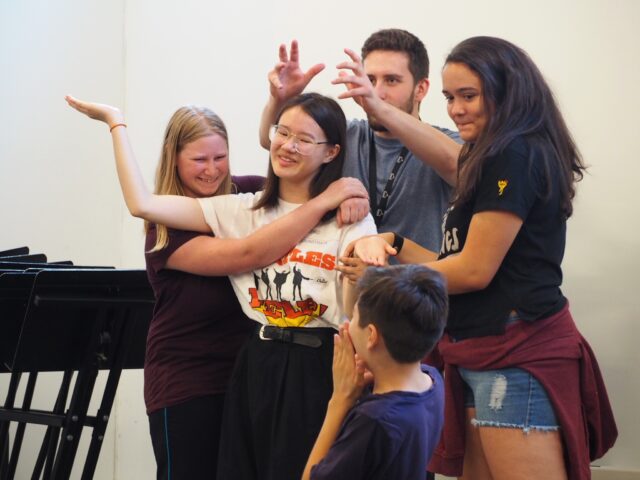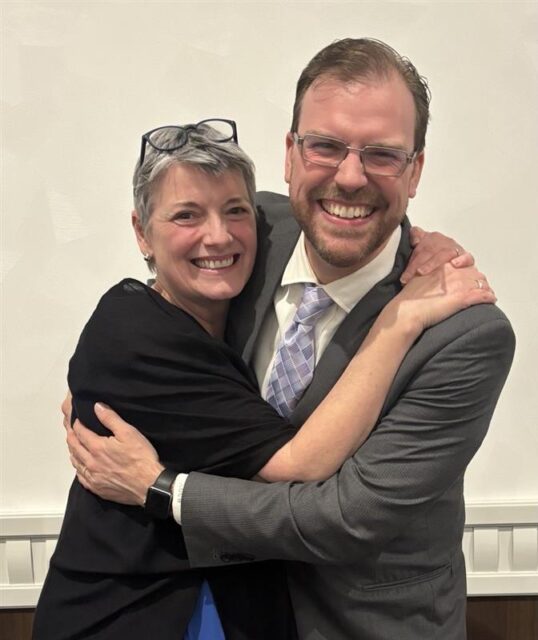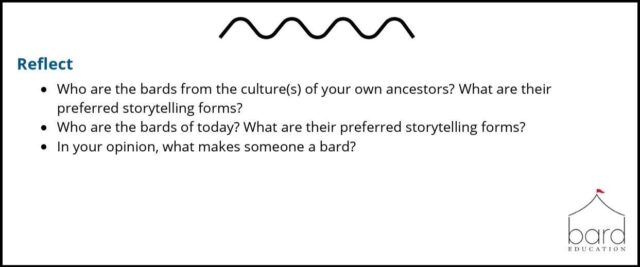Bard Education’s new Discovery Zone resources invite everyone to experience Shakespeare in a way that prioritizes self-discovery and personal reflection. We had the opportunity to talk to Mary Hartman, Director of Education at Bard on the Beach, and learn more about how the Discovery Zone came to be and the value in creative connection to Shakespeare. She also shares with us a special encounter she had at this year’s Shakespeare Theatre Association conference in San Francisco.
“There are plenty of people in the world who will explain Shakespeare for you, tell you what it’s about, tell you what all the themes are, and interpret it for you. That doesn’t interest us.” —Mary Hartman
Mary first had the idea of creating a collection of resources available to students, teachers, and everybody at home when the pandemic hit in spring of 2020, sending everyone into social isolation. Mary and the rest of the Bard Education Administrative Team (the BEAT) then came out with Explore at Home, created using Google Classroom. This enabled them to provide digital learning opportunities that still encouraged creativity away from the screen. Some exercises involved expressing individual interpretations of Shakespeare through activities such as photography or curating a playlist. They quickly reached Google Classroom’s 250-user capacity, and as schools began to transition back to in-person classes, the Explore at Home format was reassessed, and the dream of the Discovery Zone began to take shape. Thanks to the support of the London Drugs Foundation and her team, Mary has been hard at work over the past 18 months developing resources that introduce Shakespeare’s language through an open-minded and creative approach, prompting self-discovery and creating deeper connection to the material.
To make these resources more accessible to classroom teachers, an important part of the process for Mary and her team was consulting teachers from across BC who work with middle-school and high-school students. This influenced the design of a curriculum planner, also located in the Discovery Zone, that anyone can use to filter the activities or subjects that would best fit different interests and levels of engagement.

Bard Education participants. Photo by Jenny Rush Cooper
Above all, the goal of Bard Education’s Discovery Zone is to encourage learners to reflect on Shakespeare’s plays and personally relate to the language, stories, and characters. “We’d really like to challenge traditional assumptions about the characters and open them up for anyone to explore,” Mary shared. “One example of this involves gender.” In creating these resources, Bard Education has tried to avoid gendered language in the descriptions as much as possible, using terms like “monarch” or “parent” and identifying characters by their name rather than their pronouns.
“There’s no reason, for example, Juliet has to be Italian, female, not quite 14 years old, and non-disabled—Juliet can be anybody. I want anybody who connects with what Juliet says and what Juliet does […] to explore that.”
As for what’s next, Bard Education plans to continue to expand their Discovery Zone resources. So far, the Character Explorers appear to be a favourite, and Mary tells us she would like to include some characters from Julius Caesar next.
“It’s so interesting […] to look at the play through different characters’ eyes, because that’s one of the great things about any dramatic literature and what Shakespeare does so well is how democratic it is, every character has their own perspective,” she explains. “If you look at Hamlet through Claudius’ eyes, that can be really interesting. It doesn’t condone Claudius’ murder of his brother, but it’s more interesting to think about what might lead someone to make such a choice, because I think that helps us avoid making those choices, ourselves.”
In another form of encouraging personal connection to Shakespeare’s pieces, the resource A Bard Among Many under the Making Shakespeare Your Own section is one of Mary’s personal favourites in the collection.
“It invites people to think about the way human beings tell stories, and the way all different cultures throughout human history tell stories […] It asks students: ‘Who are the “bards” of your own ancestors?’”
In the first 10 days the Discovery Zone was live, it reached 376 downloads from 140 unique active users. Since then, Mary has also been sharing it through her education network, and back in January, she spread the word to her international colleagues at the Shakespeare Theatre Association conference. There, she also had an interaction with someone from her past.
Mary tells us she was catching up with other conference attendees in the hotel lobby when a young man approached her and inquired about the conference badge she was wearing. He introduced himself as Amile Wilson from the Mississippi Shakespeare Festival in Jackson. In the mid-1990s, Mary would spend three weeks of the year in Jackson, and as she and Amile continued to talk, they discovered they had a mutual friend: a retired English teacher who attended one of the month-long institutes for teaching Shakespeare at Mary’s former workplace, Shakespeare & Company in Massachusetts. In learning this, Amile lit up, recalling the life-changing experience he had when Shakespeare & Company visited his middle school, to which Mary realized, “That was me, I was the teaching artist who went to his middle school when he was twelve years old! […] We rushed into each other’s arms for a giant hug.”

Photo courtesy of Mary Hartman
Amile explained that Mary’s visit to his school introduced him to the possibilities of working in theatre. He went on to become a theatre director, film producer, and director, and he started the first and only professional Shakespeare festival in Mississippi.
“So many of us have done things that have touched people, nudged their trajectory, and given them an opportunity to go and do something completely different. So many people have done that, but how rare is it to be able to know it, to witness it? I’m incredibly grateful.”
Bard Education is in the middle of a busy March! Bard in the Classroom continues to visit schools across the Lower Mainland, with up to 100% subsidies available thanks to the Y. P. Heung Foundation. Bard Youth Fest, with free access thanks to the Pamela and David Richardson Family Foundation, has just over 100 students participating until early May. Then, Bard for Life will be wrapping up with their finale showcase at the end of this month, and Bard Studio workshops continue to be offered for free to the community, thanks to the Bard Access Fund.
Be sure to check out the Discovery Zone for yourself! Click the Free Resources link under the Education drop-down menu to see all the resources in our Discovery Zone. Special thanks to Mary Hartman taking the time to tell us more about the Discovery Zone and share her heartwarming story.
Bard Education Summer Camp registration is open now! Visit our website HERE for more information – spots are filling quickly!

